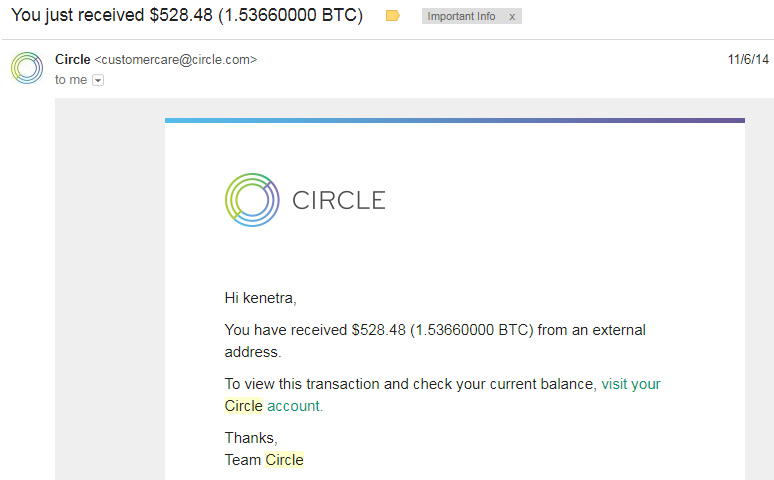A Cypherpunk's Manifesto
by Eric Hughes
Privacy is necessary for an open society in the electronic age.
Privacy is not secrecy. A private matter is something one doesn't
want the whole world to know, but a secret matter is something one
doesn't want anybody to know. Privacy is the power to selectively
reveal oneself to the world.
If two parties have some sort of dealings, then each has a memory of
their interaction. Each party can speak about their own memory of
this; how could anyone prevent it? One could pass laws against it,
but the freedom of speech, even more than privacy, is fundamental to
an open society; we seek not to restrict any speech at all. If many
parties speak together in the same forum, each can speak to all the
others and aggregate together knowledge about individuals and other
parties. The power of electronic communications has enabled such
group speech, and it will not go away merely because we might want it
to.
Since we desire privacy, we must ensure that each party to a
transaction have knowledge only of that which is directly necessary
for that transaction. Since any information can be spoken of, we
must ensure that we reveal as little as possible. In most cases
personal identity is not salient. When I purchase a magazine at a
store and hand cash to the clerk, there is no need to know who I am.
When I ask my electronic mail provider to send and receive messages,
my provider need not know to whom I am speaking or what I am saying
or what others are saying to me; my provider only need know how to
get the message there and how much I owe them in fees. When my
identity is revealed by the underlying mechanism of the transaction,
I have no privacy. I cannot here selectively reveal myself; I must
_always_ reveal myself.
Therefore, privacy in an open society requires anonymous transaction
systems. Until now, cash has been the primary such system. An
anonymous transaction system is not a secret transaction system. An
anonymous system empowers individuals to reveal their identity when
desired and only when desired; this is the essence of privacy.
Privacy in an open society also requires cryptography. If I say
something, I want it heard only by those for whom I intend it. If
the content of my speech is available to the world, I have no
privacy. To encrypt is to indicate the desire for privacy, and to
encrypt with weak cryptography is to indicate not too much desire for
privacy. Furthermore, to reveal one's identity with assurance when
the default is anonymity requires the cryptographic signature.
We cannot expect governments, corporations, or other large, faceless
organizations to grant us privacy out of their beneficence. It is to
their advantage to speak of us, and we should expect that they will
speak. To try to prevent their speech is to fight against the
realities of information. Information does not just want to be free,
it longs to be free. Information expands to fill the available
storage space. Information is Rumor's younger, stronger cousin;
Information is fleeter of foot, has more eyes, knows more, and
understands less than Rumor.
We must defend our own privacy if we expect to have any. We must
come together and create systems which allow anonymous transactions
to take place. People have been defending their own privacy for
centuries with whispers, darkness, envelopes, closed doors, secret
handshakes, and couriers. The technologies of the past did not allow
for strong privacy, but electronic technologies do.
We the Cypherpunks are dedicated to building anonymous systems. We
are defending our privacy with cryptography, with anonymous mail
forwarding systems, with digital signatures, and with electronic
money.
Cypherpunks write code. We know that someone has to write software
to defend privacy, and since we can't get privacy unless we all do,
we're going to write it. We publish our code so that our fellow
Cypherpunks may practice and play with it. Our code is free for all
to use, worldwide. We don't much care if you don't approve of the
software we write. We know that software can't be destroyed and that
a widely dispersed system can't be shut down.
Cypherpunks deplore regulations on cryptography, for encryption is
fundamentally a private act. The act of encryption, in fact, removes
information from the public realm. Even laws against cryptography
reach only so far as a nation's border and the arm of its violence.
Cryptography will ineluctably spread over the whole globe, and with
it the anonymous transactions systems that it makes possible.
For privacy to be widespread it must be part of a social contract.
People must come and together deploy these systems for the common
good. Privacy only extends so far as the cooperation of one's
fellows in society. We the Cypherpunks seek your questions and your
concerns and hope we may engage you so that we do not deceive
ourselves. We will not, however, be moved out of our course because
some may disagree with our goals.
The Cypherpunks are actively engaged in making the networks safer for
privacy. Let us proceed together apace.
Onward.
Eric Hughes
<[email protected]>
9 March 1993
Source: https://w2.eff.org/Privacy/Crypto/Crypto_misc/cypherpunk.manifesto
Resources: https://en.wikipedia.org/wiki/Cypherpunk
Author: Bitcoin Digital Money
Episode-04092018-Buying-Bitcoin
How to purchase Bitcoin with the easiest on ramp, Coinbase. Remember you never want to leave your assets on ANY exchange exposing them to counter party risk. Coinbase is newbie friendly but is just like any other bank you deal with….they own the private keys NOT YOU!
$10 Free Bitcoin –> https://bitcoindigitalmoney.com
Podcast: Play in new window | Download
Subscribe: Apple Podcasts | RSS
Episode-04032018-Bitcoin-Background
Bitcoin Background Overview
This episode goes over some very thought provoking questions surrounding the Bitcoin ecosystem from a very high level viewpoint. What is Bitcoin? Why should I use Bitcoin? Bitcoin, a bearer asset?
Podcast: Play in new window | Download
Subscribe: Apple Podcasts | RSS
SEC Busts Fraudulent ICO Centra Endorsed By Floyd Mayweather
The US Securities and Exchange Commission (SEC) charged two co-founders of a supposed financial services start-up with organizing a fraudulent initial coin offering (ICO), the SEC announced in a press release April 2.
The SEC says the the co-founders of Centra Tech. Inc., Sohrab Sharma and Robert Farkas, were arrested and charged after raising $32 mln in unregistered investments through a “CTR Token”. Farkas had made arrangements to leave the country, but was detained before boarding his flight.
According to the SEC, Sharma and Farkas claimed the company would offer a variety of financial products, including a debit card backed by Visa and MasterCard, with which users could instantly convert cryptocurrencies into US dollars and other legal tender. The SEC says that no such agreement or relationship existed between Centra Tech. Inc. and Visa or Mastercard.
The US financial watchdog further alleges that Sharma and Farkas promoted their fraudulent ICO by creating fictional executives with impressive resumes and biographies, posting “false or misleading” market materials, in addition to paying celebrities to promote the ICO. American boxer Floyd Mayweather supported the ICO on Instagram in a post which has since been removed. Stephanie Avakian, the Co-Director of the SEC’s Division of Enforcement said of the charges:
“We allege that Centra sold investors on the promise of new digital technologies by using a sophisticated marketing campaign to spin a web of lies about their supposed partnerships with legitimate businesses. As the complaint alleges, these and other claims were simply false.”
Sharma and Farkas have officially been charged with violating anti-fraud and registration provisions of federal securities laws. The SEC is seeking permanent injunctions and a return of their gains plus interest and penalties. The SEC also intends to bar Sharma and Farkas from serving as public company officers or directors and from participating in any offering of securities, digital or otherwise.
In November of last year, Cointelegraph reported that the SEC warned investors that celebrity-endorsed ICOs could be illegal. The commission claimed that celebrities who promote token sales could be breaching “anti-touting laws” if they do not disclose their compensation.
Source: https://cointelegraph.com/news/sec-busts-fraudulent-ico-endorsed-by-floyd-mayweather-founders-defrauded-32-mln
Related Material: https://www.sec.gov/litigation/complaints/2018/comp-pr2018-53.pdf

Jack Dorsey: Bitcoin will become the single global currency of the internet
Despite recent weakness in the value of Bitcoin and concerns that it cannot currently process transactions fast or cheaply enough to act as a currency, Mr Dorsey, who is chief executive of both Twitter and the payments company Square, believes that Bitcoin will overcome these obstacles and will be used to buy everyday items such as coffee.
Bitcoin Breaks $4000 USD
Bitcoin Crash $2358 USD
I did a live video stream on Youtube talking about the market sentiments with the small pullback Bitcoin experienced. Why its necessary and why you should never speculate with scared money. Scared money never makes money period!
Bitcoin Breaks $1800 USD
Bitcoin Breaks $1500 USD
My First Bitcoin Purchase
I first heard about Bitcoin back when it was trading for about .10 cents per BTC. I didn’t think to much of it other than it was an interesting concept. About a year or so later I was hearing more and more about it and I started my in depth research on it.
To my surprise Bitcoin was exactly what I was looking for as a store of value, a hedge against the falling dollar, a way to transfer large sums of money without expensive fees and a way to control my own capital without third party intervention.
Once I read the white paper it was like love at first site and Bitcoin and I have been a couple every since. I was being paid in Bitcoin from clients back in 2013 and purchased my very first Bitcoin in the year 2014.
Down the rabbit hole I went 😉

Tell me about your first Bitcoin purchase below. I’d love to hear the stories.
